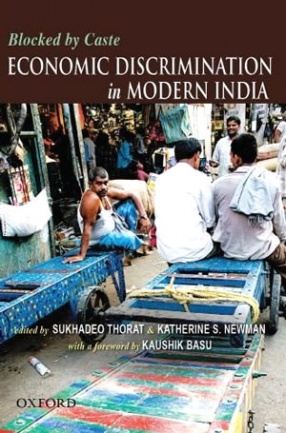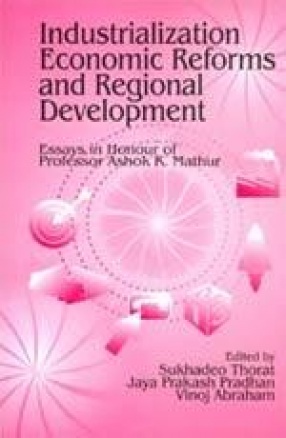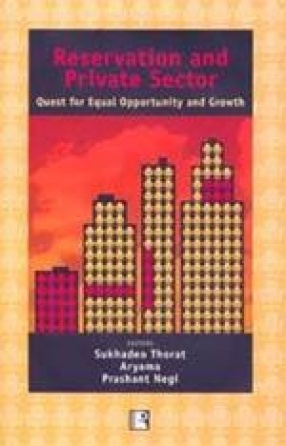
Sukhadeo Thorat

Showing all 10 books

Social science research has a vital role in enriching societies, by generating scientific knowledge that brings insights even enlightenment in understanding the dynamics of human behaviour and development. For social sciences to realize their potential in shaping public policy, it is imperative that the research ecosystem is dynamic and vibrant; The institutions governing it are robust and effective and those producing quality research are strong and well ...

In recent years issues like caste discrimination and social exclusion have been discussed extensively in India. However, while the linkages between caste and society have been studied widely, the interface between caste and economy or economic development remains an under-researched terrain. Blocked by Caste explores contemporary patterns of economic discrimination faced by Dalits and religious minorities like Muslims and the underlying attitudinal orientations ...

Slum in the Metropolis--the Living Environment covers the multi-dimensional profile of the urban poor. The book provides an indepth analysis of social and economic conditions of the people living in a squatter settlement with surrounding middle and high income residential areas in South Delhi. On one hand, it examines the quality of people, in terms of their socio-economic status, on the other hand, it highlights the deficiencies of the living environment, in ...

The World conference Against Racism, Racial Discrimination Xenophobia and Related Intolerance (WCAR), held at Durban in South Africa in 2001, led to an intense discussion on the issues of caste and race in India. The debate was catapulted to the center stage by the demand of Dalit groups for inclusion of caste in the agenda of this conference and the different stands taken by the government and some section of civil society. The discussion with different stands ...

This book covers a wide array of topics that have acquired relevance in the context of liberalization of the Indian economy. Issues confronting the economy such as widening regional disparity, Informalisation and reminization of workforce, gender disparity and economic growth are brought to the focus. It presents a comprehensive picture of these traditional development issues, looking at their trends, identifying the causal factors and suggesting suitable policy ...

Policies of legal safeguards and reservation/affirmative actions in favour of discriminated groups have a tendency, globally, to generate acrimonious and heated debates. The idea of introducing reservation in the private sector has received a fair share of differing opinions in India. This volume brings representative places of those opinions together at one place. The papers address some of critical issues that appeared in the current debate on reservation: Are ...

The book develops a new insight into the evolution of Economic Planning, and Water and Power Policy in India during the period immediately preceding Independence. It brings to light lesser known facts about the Central Government’s Water and Power Policy and highlights the fact that the Post-War Reconstruction Plan of 1942-47 led to the initiation of Economic Planning in India. Similarly, the new water and power policy initiated as a part of Post-War ...

The book develops a new insight into the evolution of Economic Planning and Water and Power Policy in India during the period immediately preceding Independence. It brings to light lesser known facts about the Central Government's Water Policy and highlights the fact that the Post-War Reconstruction Plan of 1942-1947 led to the initiation of economic Planning in India. Similarly, the new water policy led to some basic decisions related to the planned development ...

Addressing the problem of Other Backward Classes (OBCs) through the policy of reservation of seats in the higher educational institutions by the government and subsequently passing of an act by the parliament has renewed the debate on reservation and related issues. This volume brings together selected and exceptionally insightful papers appeared in the journals, newspapers etc., dealing with every conceivable dimension of the reservation policy in general and ...

The book unravels the approaches, strategies and methods used by different types of philanthropic organizations in addressing the problems of society. They include community-based national and international organizations, corporate sector organizations, family-based organizations and those run by the government. While it brings insights into the priorities these organizations accord, it specially looks into the question whether these organizations address the ...
